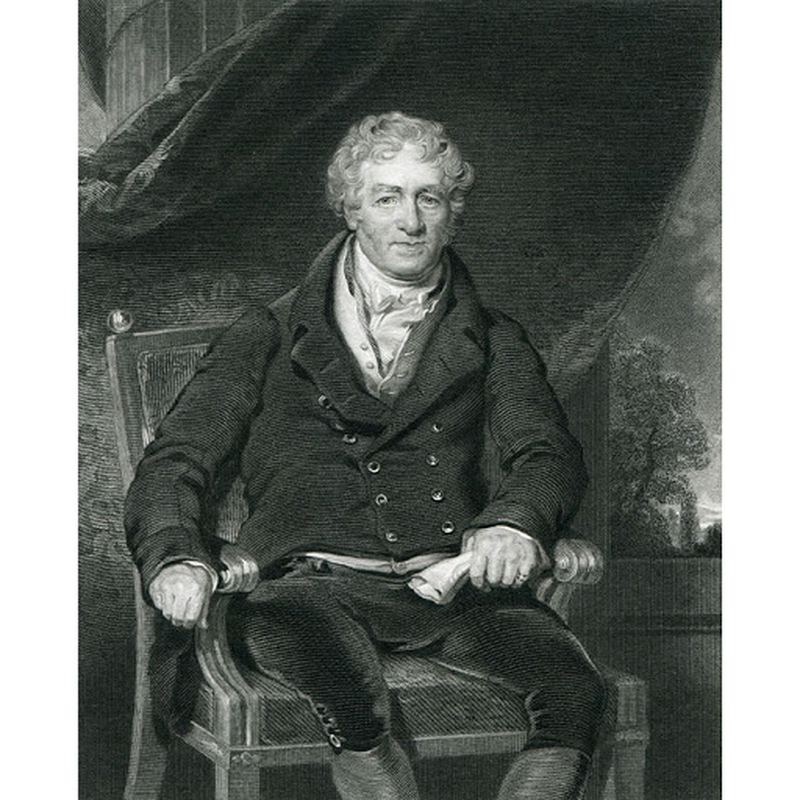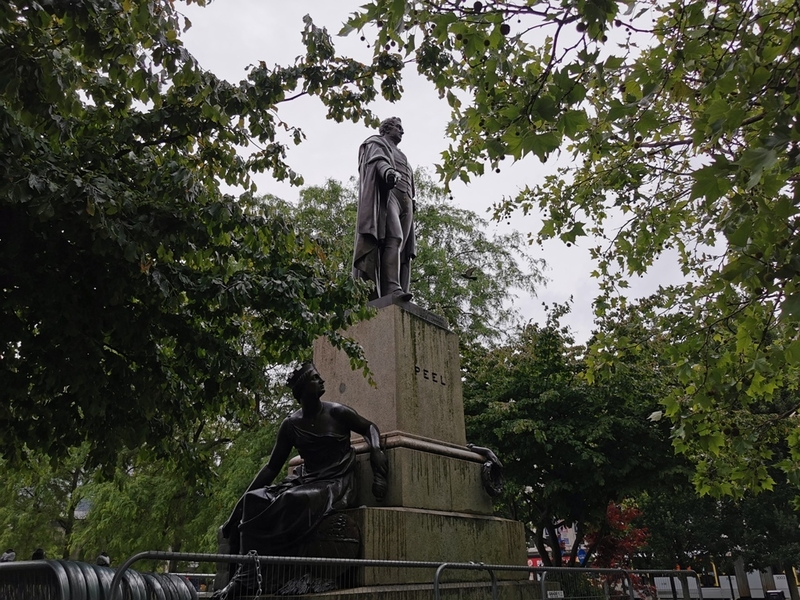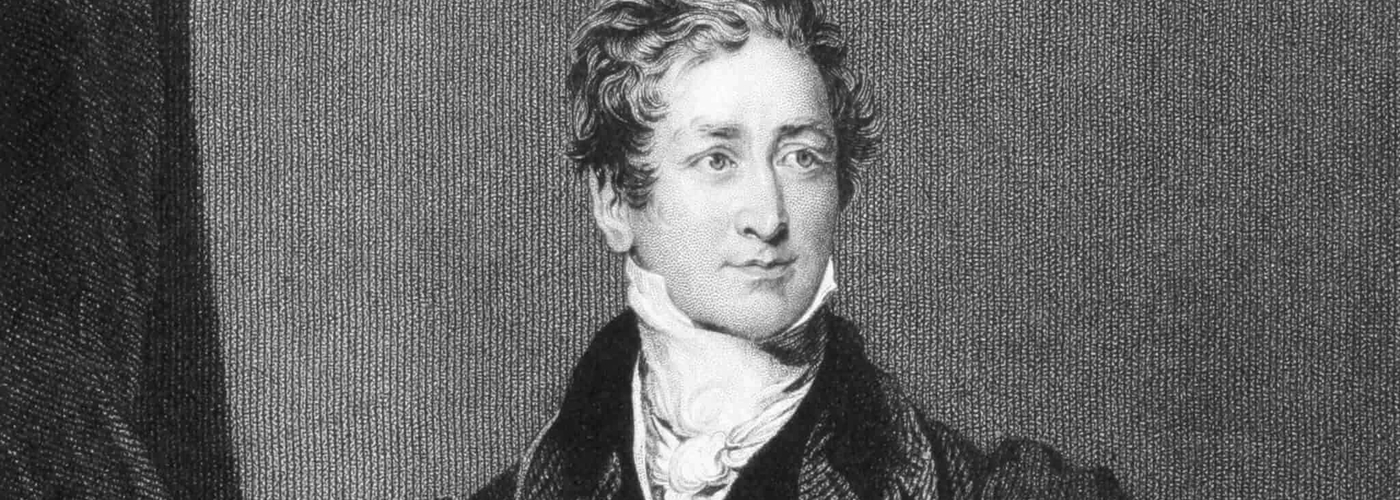Jonathan Schofield wonders how far do you go in finding links with slavery?
A new campaign argues that the statue of Robert Peel must go because his father, also Robert, raised a petition, a little before the 1807 abolition of the slave trade in the British Empire.
The petition stated slavery should be retained in the interests of raw cotton production supplying Manchester and Lancashire. Peel’s father was not a slaver himself, although he clearly lacked empathy and moral clarity in regard to the suffering of his fellow humans enslaved across the seas. Why that should condemn the statue of Robert Peel, his son, in Piccadilly Gardens, is unclear.
He was seen as man who had battled against the haughty, arrogant establishment and won while doing his best for the wider population
There’s the oft-quoted biblical line about the sins of the father, which goes: ‘The son shall not bear the iniquity of the father, neither shall the father bear the iniquity of the son.’
I've been reading Francis Wheen’s biography of Karl Marx while researching a book I'm writing called 'Friedrich Engels & Karl Marx in Manchester.' Some critics condemn Marx for inspiring the Soviet Union and Mao’s China, both of which murdered or caused the premature deaths of millions of their own people. ‘If,’ writes Wheen about one particular critic, ‘he found wasp-eaten windfalls in his orchard – or, perhaps, was served an overcooked apple for lunch – did he reach for an axe to administer summary justice to the guilty tree.’

Another reason for removal, say the campaigners, is that during the 1820s, as Home Secretary, Peel created a professional standing police force and that the police force has since been used as a tool to oppress and repress people. I don’t even know where to begin with that one, as cause and effect starts to get so muddled it becomes ridiculous.
If the campaigners were calling for the police service to be reformed in pursuit of real equality of conduct when it comes to racial background that would be one thing, but to call for the police force’s abolition is both childish and unjust to thousands of excellent officers in the force today. It also ignores the question of what we would replace it with.
The word reform is instructive.
The life of the Bury-born man on that Piccadilly plinth is one of an individual who mellowed into one of the most popular British statesmen. For instance, he moved from a young man who opposed parliamentary reform and Catholic emancipation in the early 1830s, to one who pursued the first and admitted the correctness of the second by the 1840s. Peel was the Conservative who reformed factory conditions and established the idea of the ‘one nation Tory.’ To get aristocratic Tory landowners to pass the repeal of the Corn Laws and thus help ease the terrible distress during the potato famine in Ireland he, as Prime Minister, created an alliance of opposition parties and achieved the repeal of the Corn Laws. He was declared a traitor by his own party and was thrown out of the party and office. But he had got the job done.

Peel had acted on principle.
And self-interest.
His repeal of the Corn Laws was also a tool in the pursuit of the Manchester-led notion of free trade. So his motives weren’t entirely pure, the situation in Ireland gave him an excuse to push that agenda. There are complexities everywhere. Peel was overall a good politician and man; he had faults, he changed, but he was never as bad as his enemies painted him and he was never as good as his supporters claimed.
Yet the reason why there are so many statues (and other commemorations such as Peel Park, Salford) to him across the country in the industrial towns and cities is that he was seen as a man who had battled against the haughty and arrogant establishment and won. He was seen as a man who had done his best for the wider population.
In the end it was the perception of him rather than the reality which led to so many memorials.
That aside, the truth is Manchester's Piccadilly Peel was in no way directly involved in the slave trade and was nothing like the monstrous Edward Colston whose statue went for a swim in Bristol. Peel should not be removed but he and the other monuments in the city should be explained. Proper plaques should be erected telling us, in an emotionless manner, the history of the person commemorated and why they were and are commemorated. People can then make their own minds up about the character and actions of that individual.
The problem is that by current standards just about everybody in the past, and the fairly recent past, would be deemed racist, homophobic and misogynist. The fact that it is not only people but institutions that might have connections, however indirectly to slavery, or other forms of oppression, shows how far the ripples spread from the splash of Colston in the dock.
The situation at present is like a woolly jumper that has a loose thread. Pull on that thread and it starts to unravel and you are left with nothing, but an incoherent mess of wool. If we follow that route, half the buildings and half Britain’s companies and institutions would have to go. Maybe more than half. And more than half of those in other countries with any connection to slavery, which is just about every country, on every continent. What is certain is just as those figures on plinths are being judged in 2020, our actions will be judged in future. Surely the path of education through information is better than violence committed against cold bronze and stone?
Confidential will be publishing a series of articles this week examining the backgrounds of some of Manchester's other statues. Tomorrow, are there any other statues that should be removed?
















